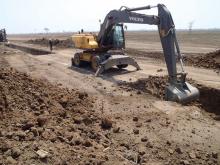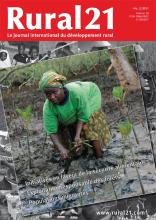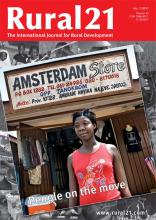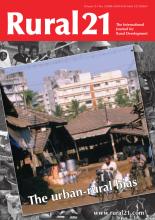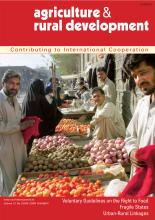Land Library
Welcome to the Land Portal Library. Explore our vast collection of open-access resources (over 74,000) including reports, journal articles, research papers, peer-reviewed publications, legal documents, videos and much more.
/ library resources
Showing items 1 through 9 of 18.Cette journée de réflexion a été consacrée à la sécurisation de l’accès au sol et à l’habitat dans les villes du Sud, et notamment aux marges de celles-ci, dans les quartiers dits précaires ou informels.
Not only rabbits and guinea-pigs but sheep, goats, cattle and pigs also play a crucial role in the food and income situation of countless city-dwellers world-wide. However, when people and animals live in such close proximity, health risks are inevitable.
Nearly 200 million Africans currently live in slums. Urban operations are one of the main tools for improving living conditions in informal settlements, where land tenure, housing, development and services largely function outside any official system.
L’urbanisation est souvent considérée comme ayant des effets néfastes sur le développement rural. En fait, c’est tout le contraire.
Rural development and urbanisation are often seen as competing, but in most cases are intimately linked. It is essential that policies re? ect and support the many positive links between rural and urban areas, enterprises and people.
The early development strategies of both China and India were urban- and industry-focused, discounting the importance of rural development. Despite sweeping reforms in both countries, the urban bias and subsequent spatial disparities still exist today.
Dar es Salaam is one of the fastest growing cities in sub-Saharan Africa. In its rapidly expanding peri-urban fringe poor migrants from distant rural areas settle down on plots they can afford that provide access to urban markets.
Dans les villes en développement, les marchés fonciers et immobiliers sont en grande partie informels. Ils concernent les pauvres comme les classes moyennes.
L'urbanisation et la transformation économique, c'est-àdire la croissance des secteurs non agricoles, industriels et tertiaires, offrent de nombreuses possibilités d'améliorer les conditions d'existence des pauvres.


